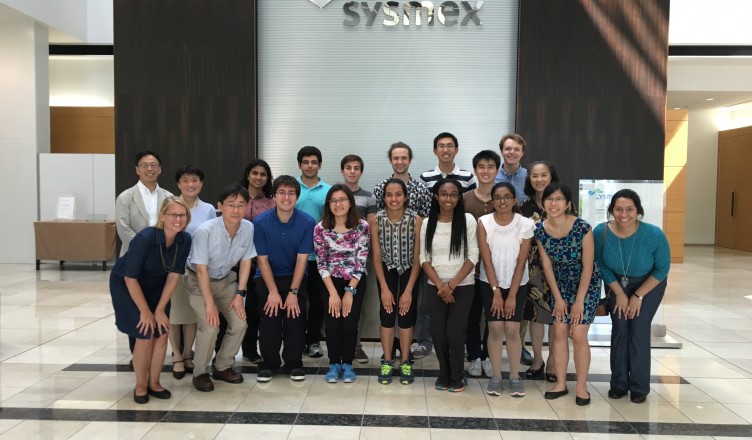The Nakatani Foundation is pleased to announce the opening of the application cycle for the 2017 Nakatani RIES: Research & International Experience Program for U.S. Students! Nakatani RIES connects undergraduates with the best of science & engineering research in Japan and the U.S. and is open to freshman and sophomore science & engineering students attending U.S. universities. The program serves as a catalyst for U.S. students who are interested in future graduate study and research and contributes to the development of a generation of globally-engaged scientists & engineers who have the technical and culture skills to contribute to vibrant international research collaborations in the future.
Nakatani RIES Fellowship for U.S. Students
Application Deadline: January 12, 2017
The Nakatani RIES Fellowship for U.S. Students is a 13-week, summer research internship in science & engineering that is open to freshman and sophomore engineering students from universities nationwide. This summer program seeks to cultivate interest in science & engineering research among young U.S. undergraduate students, especially those from underrepresented groups, and encourages such students to pursue future graduate study. Up to 12 students will be selected to participate annually.
The Nakatani RIES Fellowship for U.S. Students program will include the following program components.
- Pre-Departure Orientation at Rice University
- Three-week Language & Cultural Orientation in Japan
- 45 hours of intensive Japanese language study
- Introduction to Science & Engineering Research Seminars
- Introduction to Japanese Society & Culture Seminars
- Nine-week Research Internship at a Japanese university or research institution
- Mid-Program Meeting in July
- Re-Entry Program and Final Poster Presentation at Rice University
- Enrollment in Rice University Summer School for 3 credits of Engineering Research (ELEC 490)
- Alumni Follow-on Project
Eligibility: To be eligible to apply for the Nakatani RIES Fellowship for U.S. Students must be:
- Be a U.S. citizen or permanent resident who is at least 18 years old;
- Be a currently-enrolled, degree-seeking undergraduate student in good academic standing at a U.S. institution of higher education;
- Be majoring in a science or engineering field;
- Be in their freshman (B1) or sophomore (B2) year of undergraduate study at the time of application;
- Have a minimum G.P.A. of 3.0 or above;
- Be able to express a demonstrated interest in international science & engineering research, particularly with Japan;
- Be able to express a demonstrated interested in future graduate study in a science & engineering field.
Women, underrepresented groups, and students from schools with limited research opportunities are particularly encouraged to apply. Community college students who plan to transfer to a four-year university and major in science or engineering are also strongly encouraged to apply.
Benefits: The Nakatani Foundation provides funding for most U.S. student costs including summer school tuition for 3 research credits, international health insurance for duration of time in Japan, domestic airfare to/from Houston, international airfare to/from Japan, all lodging costs, a meal/living cost stipend, seminar and Japanese language course fees during the three-week orientation program, and travel costs in Japan to/from the research internship and Mid-Program Meeting.
Student Costs: Costs that students will pay individually include passport and visa fees (if required), immunizations (if required), books, Japanese cell phone rental and usage, living costs above and beyond the provided meal/living cost stipend, independent travel/sight-seeing in Japan, and personal expenses.






